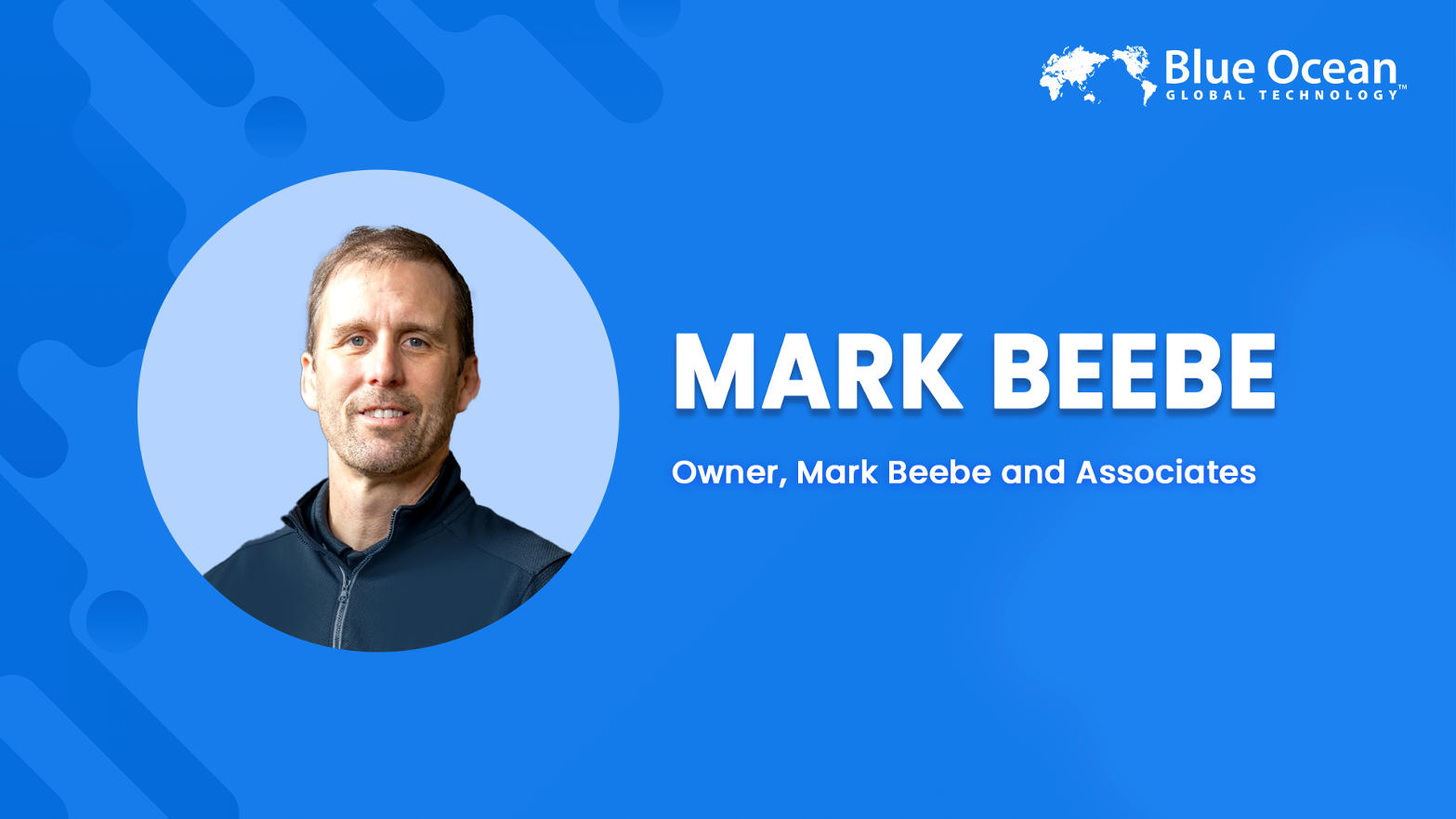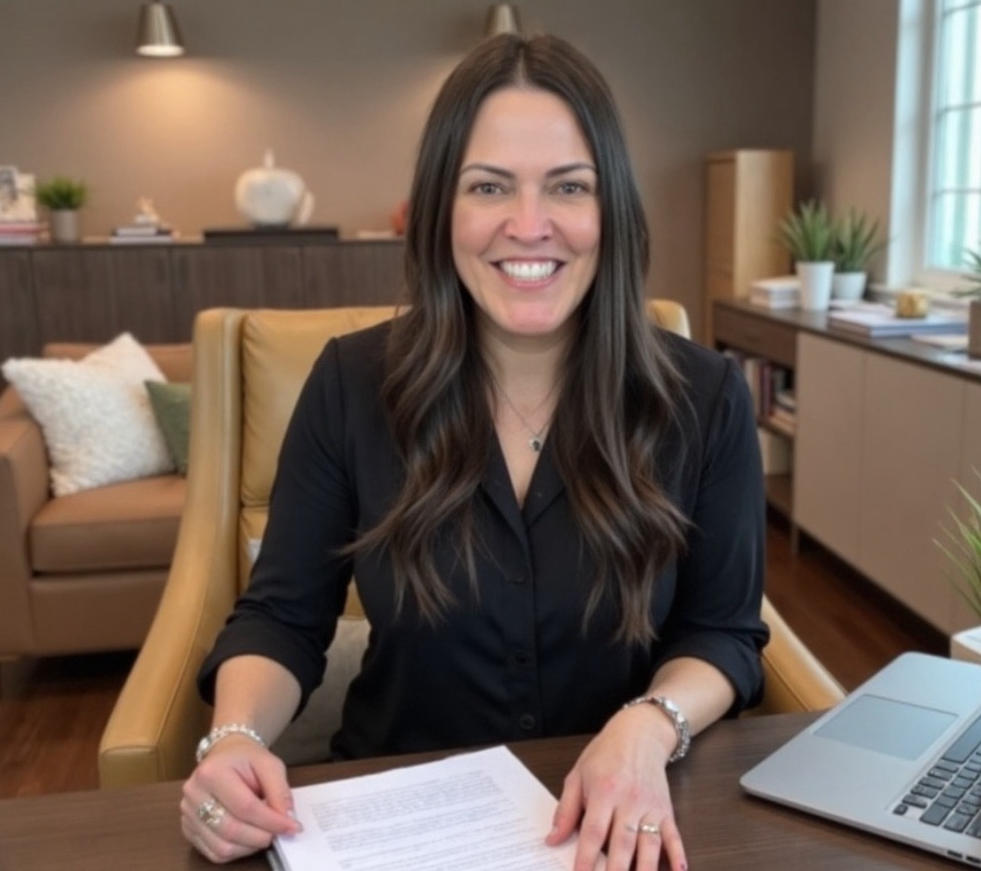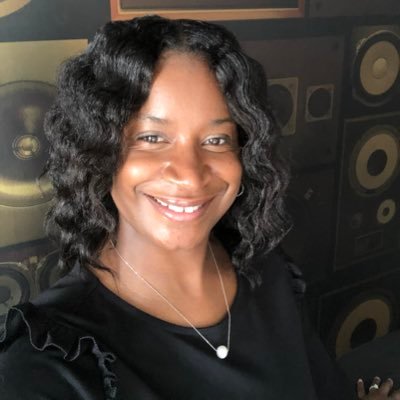About Mark Beebe
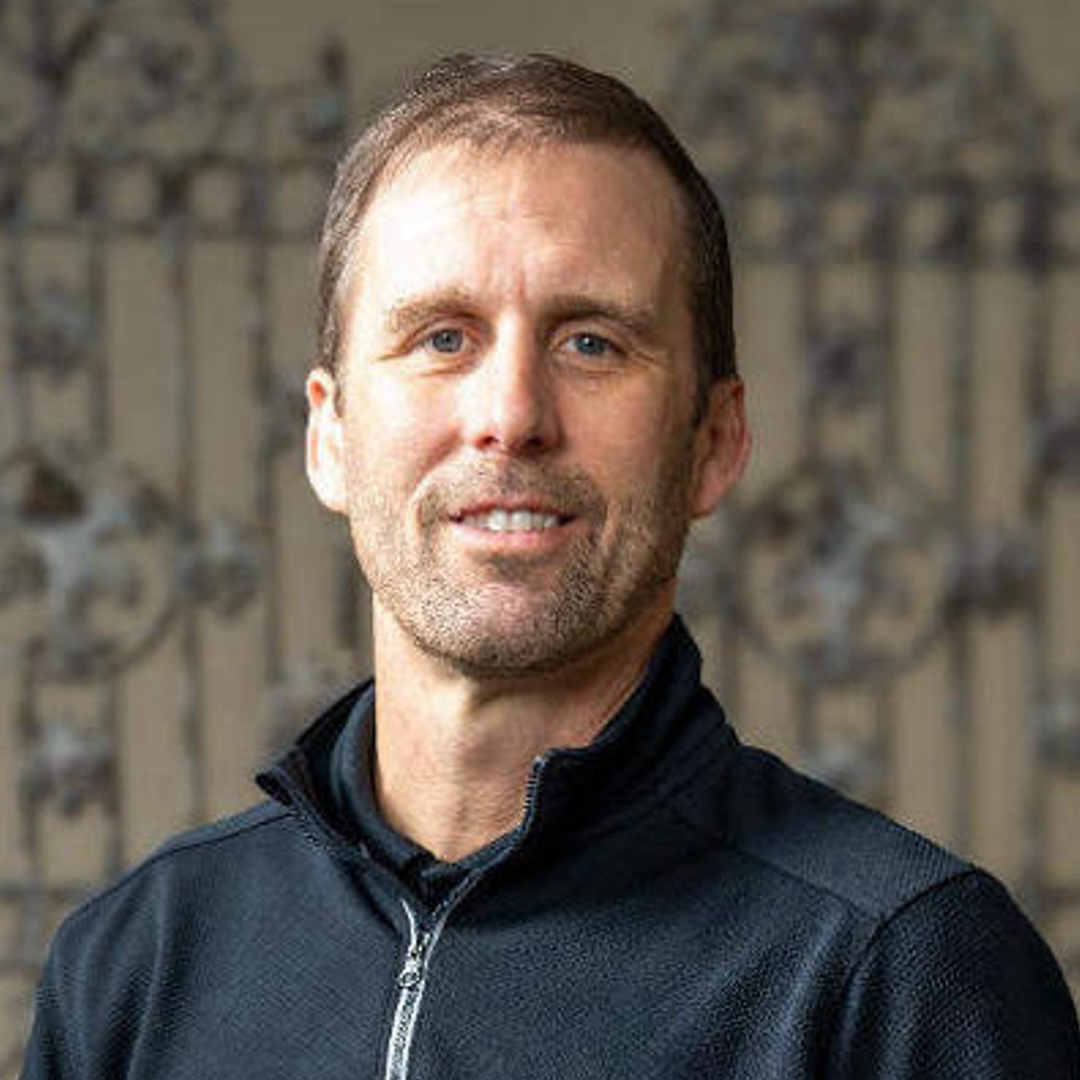
Mark Beebe is the Owner of Mark Beebe and Associates, based in Columbus, Ohio. Previously, Mark Beebe served as the Chief Financial Officer for the Ohio State University’s Alumni Association. His firm, Mark Beebe and Associates, specializes in Business Advisory services, including strategic financial management and operational execution across multiple industries. With over 25 years of experience in various CRM and financial platform transitions, Mark is known for his expertise in effective planning, seamless communication, and efficient decision-making. He is adept at maximizing procurement investments to deliver optimal long-term organizational returns.
Before founding Mark Beebe and Associates, Mark served as Chief Financial Officer for the Ohio State University Alumni Association. Bringing extensive experience in the finance industry, he has been delivering strategic financial insights and driving operational efficiencies as a Senior Financial Analyst and Production Accountant at leading companies such as Bath & Body Works, PPG Industries, and Exel Inc.
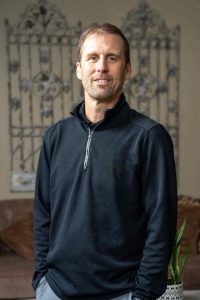
What does your typical day look like, and how do you make it productive?
The biggest thing for me is to start the day with a plan. Instead of just getting up, sitting at my desk, or going to a meeting, I need to have a plan. Of course, that plan needs to be somewhat flexible because I have to adapt if the phone rings—I can’t be too rigid. But having a general idea of what I want to accomplish for the day is crucial.
I also estimate how long things will take, though, like most people, I tend to underestimate that. If I get off plan, I need to decide what I’m going to adjust in terms of prioritization.
If my daughter calls and needs to be picked up from school because she’s not feeling well, for example, that’s not in the plan but I have to adapt.
That balance between structure and flexibility helps me stay productive and comfortable, which I believe are closely related.
I’m also fortunate to have both a home office and a physical office. Part of my daily plan includes deciding where I’ll work to be most productive. For example, today we have this call, and my office is an open environment—not ideal for an interview where someone needs to listen and use the content. So, understanding my schedule and choosing the right workspace is part of my planning process.
How do you bring ideas to life?
I kind of laugh at this question because, honestly, creativity isn’t necessarily my strongest suit. Most finance folks aren’t known for being particularly creative. I’m more of a functional finance person; a logical creator— I focus on developing solutions that can be executed. Note that this is not saying I come up with solutions that are “safe”, rather solutions that can be implemented and have an acceptable level of risk.
I work with small businesses, and their owners rely on me to help them execute ideas. So, while creativity may not be my greatest strength, I bring ideas to life by having conversations and getting the right people on board. That doesn’t always mean involving every employee, but I have to figure out who needs to be actively engaged and those that need to be aware so they are not surprised. Surprising employees is not a good thing generally.
Executing ideas, especially in small businesses, is challenging because everyone is already busy. Finding the time to implement new ideas and ensuring consistent progress is key.
For me, bringing an idea to life requires setting deadlines and sticking to them. If there are no clear deadlines, things tend to drag on. I also help motivate my employees when they’re struggling or hitting roadblocks.
Ultimately, communication is at the heart of execution. If I have a problem or don’t understand something—which happens more than I’d like to admit—I communicate. And by that, I don’t mean sending a text or email. I mean actually having a conversation to solve the problem.
What is one habit of yours that helps you be productive?
This one is a little outside of work, but for me, it’s about being physically active.
I go to the gym a few times a week—not every day, and not for two hours. I go for about 50 minutes with a clear purpose. People probably think I look a little crazy because I’m there to work out and get it done. That physical activity recharges my battery and helps me be productive.
I also coach high school wrestling. At 51 years old, I still get on the mat with 18-year-olds. I’m not as quick as I used to be, and I sometimes worry about getting hurt, but I do it because I want to give back to the sport that gave me so much. It makes me feel good to help kids develop skills that will make them successful in life.
Even on days when I don’t go to the gym or coach, I make sure to stay active—whether it’s walking the dog or something else. Moving is a huge part of keeping my energy up.
From a work perspective, adaptability is another big one. If something urgent comes up unexpectedly, I have to adjust. Many of the business owners I work with see their businesses as their retirement plans—their livelihoods. If they call me, it’s because something is important. I have to recognize that and adapt quickly without letting it throw off my entire day.
What advice would you give your younger self?
I could give my younger self a long list of advice, but I’ll boil it down to two things.
First, you’re not as smart as you think you are. Coming out of school, getting a job, and feeling ready to conquer the world is great, but slow down a little.
Second, you have two ears and one mouth—use them in proportion. It’s okay to listen more than you speak. You don’t have to have all the answers immediately. It’s okay to say, “I’ll get back to you on that,” so you can think things through and get guidance from more experienced people and your team; if you have built a strong team rely on them to help with those key decisions.
When you’re young, you don’t have a lot of experience, and thinking you know everything can be dangerous. I was lucky to have mentors early in my career who helped me realize this, though I wish I had learned it even sooner.
Tell us something you believe that almost nobody agrees with you on.
Money doesn’t buy happiness.
It can help, of course, but for a long time, my career was driven by financial goals. I was chasing promotions, trying to make more money. And I did well.
But in my mid-30s, I had a boss who never outright said it, but his actions made me rethink my priorities. I realized it’s about passion, giving back, and helping others.
Today, I work with some clients on an hourly basis and knowingly undercharge them because I care about their success more than squeezing every last dollar out of the arrangement.
Happiness isn’t about money—it’s about fulfillment.
What is one thing you repeatedly do and recommend everyone else do?
Self-care.
I don’t just mean eating well or exercising, though those are important. I mean taking care of yourself emotionally, too.
For me, working out is both a physical and emotional outlet. If I’ve had a bad day, it helps me move on.
I also get a massage once a month. It helps me stay in good shape and feel better overall. I know people who do different things—whether it’s getting their nails done or even getting Botox. Whatever makes you feel good, do it.
What is one strategy that has helped you grow your business or advance in your career?
For me, it comes down to a simple statement that we probably all heard from our parents when we were young—treat others the way you want to be treated. It is that simple.
I mentioned it earlier when I said the clients I work with are hugely invested in their businesses. If I were in their position, and my finance and business advisor wasn’t treating me the way I want my employees to be treated, why would I choose to work with them? That’s just not how it should be.
And this isn’t just in business—it’s personal too. I tell my daughters: If you’re being mean, would you want to be treated that way? Would you allow your friend to treat you the way you just treated that person?
And hey, we all do it—there’s no doubt about that. I get upset at my daughters and get frustrated with people I work with, but it’s how you respond and treat them that matters.
At the end of the day, you have to treat people the way you want to be treated. And in my opinion, it’s really not that difficult.
What is one failure in your career, how did you overcome it, and what lessons did you take away from it?
I always assume positive intent and that everybody gets up and comes to work to do their job to the best of their ability. It turns out that’s not true, unfortunately.
I always assumed that everybody was committed to the plan, the objective, or whatever it was—depending on the magnitude of the project or context. And that’s not always true. Some people aren’t committed and just come to work to collect a paycheck. Like it or not, that’s a true statement. And that’s okay. That’s not a criticism.
But I assumed everybody was fully invested and would come in at 100% every day, trying to accomplish things. And because I didn’t realize this assumption was wrong for a while, I would get frustrated. So, my failure was not recognizing this earlier and not realizing that different things motivate different people. I also needed to be more adaptable in how I approached different situations and individuals. That’s something I didn’t do a great job of, and it took me a long time to really understand how important it is in building a successful team.
I overcame it through conversations with some great colleagues—people who would sit down with me, ask questions, and help me figure it out on my own. The biggest thing is that I listen better now. I try to pick up on cues from colleagues to understand what motivates them and why they’re there. And again, people can be at work for whatever reason is important to them—there’s no judgment there whatsoever. But if I don’t understand what that is, my expectations will be set up for failure. And that’s not fair to them.
What is one business idea you’re willing to give away to our readers?
The concept I run into with small business owners—those are the people I work with, and I’d say even mid-sized businesses depending on how you define that—is that you can’t be good at everything. Hiring people who are smarter and better than you in a specific discipline is important.
For example, most of the business owners I talk to haven’t done their finance work for a while. It could be multiple years in some cases because they thought they could do it themselves or they wanted to save money. My response is: You should be the biggest advocate for your business. Your job is not to keep the books—it’s to be out there interacting with customers so they come back, tell their friends, or refer their business colleagues.
You shouldn’t be spending your time doing accounting. You certainly need to understand and be in touch with it, but as an owner, your job is to promote and grow your business. That is where you get the biggest return. The accounting and back-office work can be done by someone else.
That’s the idea I think is important for small business owners to understand—you can’t do everything, and sometimes you just have to hire someone.
What is one piece of software that helps you be productive? How do you use it?
This is so simplistic it’s almost embarrassing—my AirPods.
With them, I can do more than one thing at a time. Today, I’m not using them, but whether I’m taking a walk like I described earlier, or I’m on a call while looking at a spreadsheet, it helps me be more efficient.
Plus, it minimizes distractions. For example, if I were using my computer speaker in a public space now, you would hear background noise. But with AirPods, that’s not an issue.
They allow me to be more productive because I can multitask without being physically tied to my phone or computer. And honestly, I have enough trouble working with two hands—if I had to use only one, I’d be struggling.
What is the best $100 you recently spent? and why? (Personal or professional)
I have one for each—personal and professional.
Personally, I recently bought myself a new pair of cowboy boots I had wanted for a while. They were more than $100, but close enough. I didn’t necessarily need them, but I wanted them and finally decided to buy them. This ties back to the self-care conversation we had earlier—it was something I had wanted for a long time, and I knew I would actually wear them. It made me feel good, so I went for it.
Professionally, I bought a portable monitor. In finance—and I imagine in marketing, too—having two screens is a big deal. When I travel, that’s hard to replicate. Sitting in a hotel room or airport, working on just my laptop screen, is limiting.
I had bought a portable monitor a while ago, but it was big and clunky. The new one I bought is about the size of a legal pad, super portable, and plugs right into my computer. It makes me much more productive. I’m sure people at the airport look at me like, “What is this guy doing?” but it really helps me work efficiently.
The one I bought was about $70, so if we count shipping, we can round it up to $100. It’s lightweight, fits in my backpack, and makes working on the go much easier.
Do you have a favorite book or podcast (or both) that you’ve gotten a ton of value from and why?
One that stands out is Team of Rivals by Doris Kearns Goodwin. It’s about Abraham Lincoln—his history before becoming president and then his time in office.
The title refers to how Lincoln built his cabinet—unlike today’s politics, where candidates tend to surround themselves with people who think exactly like them, Lincoln did the opposite. His cabinet was made up of people who had run against him for president, people with vastly different views. They challenged him, disagreed with him, and forced him to think critically. But Lincoln was incredibly loyal to them because he saw the value in different perspectives.
That book made me think about how I value differing opinions and how listening to different viewpoints can help me make better decisions. It’s a long book—600 pages—but it was incredibly insightful. It reinforced the idea that just because someone thinks differently than you doesn’t mean they’re wrong. In fact, more often than I’d like to admit, I’m the one who’s wrong.
Having respectful, challenging debates and conversations is important, and that book drove that lesson home for me.
What’s a movie or series you recently enjoyed and why?
There are a number of them, but I’d say my go-to genre is detective-type shows.
I watch TV in the evenings to unwind, and when I’m not watching a sporting event, I usually find myself watching some kind of crime drama like NCIS. There are a bunch of different versions of them, but they follow a similar pattern.
I like them because they make me think a little, but not too much. If I miss a detail here or there, it’s not the end of the world because, in the end, they’re going to catch the bad guy. There’s no major stress—it’s just entertainment.
That’s the same reason I go to a movie. I don’t want to watch something where I have to focus intensely or feel like I can’t get up to grab a drink or go to the bathroom because I’ll miss something critical. That’s too much work. I just want to relax and enjoy it.
Do you have a personal or professional story that can inspire other people into becoming the best version of themselves?
You are welcome to share your journey with our audience.

